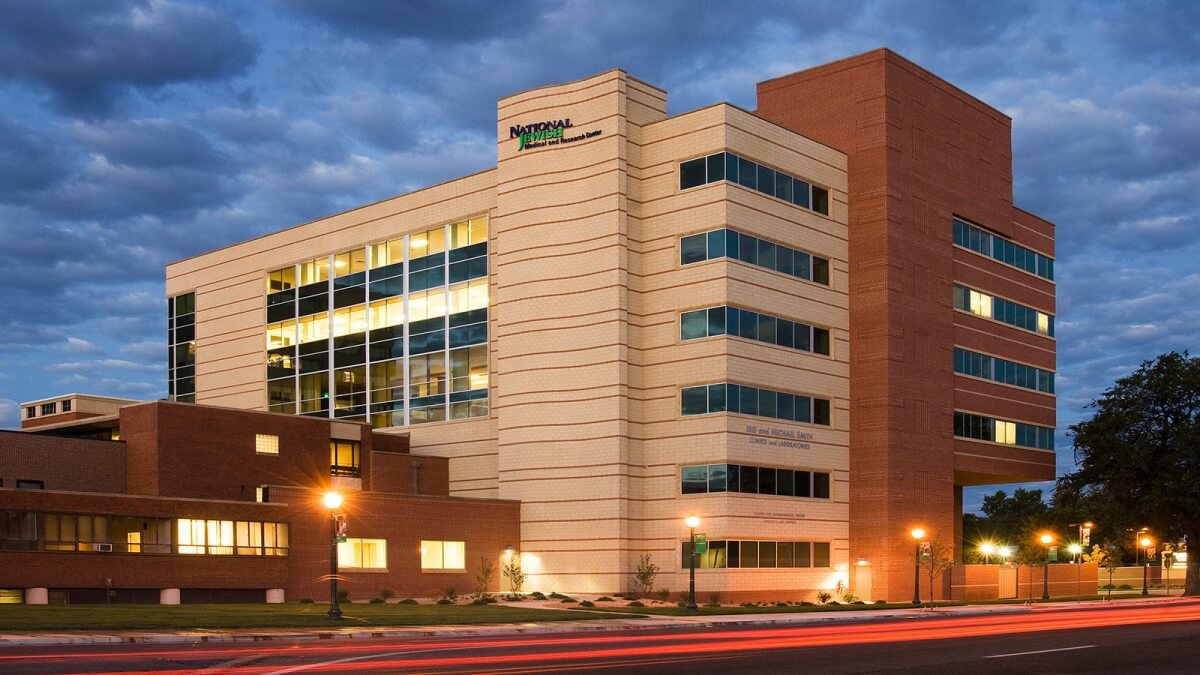 For the second year in a row, Colorado Academy students in Suzie Jekel’s Upper School Advanced Biotechnology class have taken part in a rare opportunity to scientists, attended professional lectures, and visit and work with one of the country’s number one medical research facilities, National Jewish Research Hospital. This began as a unique partnership between the two institutions dedicated to the education of future scientists.
For the second year in a row, Colorado Academy students in Suzie Jekel’s Upper School Advanced Biotechnology class have taken part in a rare opportunity to scientists, attended professional lectures, and visit and work with one of the country’s number one medical research facilities, National Jewish Research Hospital. This began as a unique partnership between the two institutions dedicated to the education of future scientists.
In last year’s class, juniors and seniors had devoted the first trimester to learning how to run gel electrophoresis, protein assay, ELISSA, Western Blots and other skills necessary in the field of biotechnology. During the second trimester, they developed their own projects and worked with several area businesses and hospitals to get their ideas off the ground.
 The work done with the National Jewish researchers was the catalyst for all of the original projects the students designed for their final projects. While at National Jewish, these budding biochemists shadowed several scientists, attended professional lectures, and performed an inquiry-based dissection on the topic of asthma.
The work done with the National Jewish researchers was the catalyst for all of the original projects the students designed for their final projects. While at National Jewish, these budding biochemists shadowed several scientists, attended professional lectures, and performed an inquiry-based dissection on the topic of asthma.
They were also involved in several discussions about what it takes to be a research scientist. Among the objectives was to expose students to relevant applications of the skills they had been learning in the class.
 To provide measured results of the visit, the students were asked to design projects based on what they had learned. One group performed flow cytometry (a technique for counting and examining microscopic particles, such as cells and chromosomes, by suspending them in a stream of fluid and passing them through an electronic detection apparatus) on the dissected tails of zebra fish to identify cell patterns responsible for the amazing regenerative powers of that species. Another group genetically surveyed the students in the school for childhood scoliosis, sampled more than 150 students, and isolated the gene responsible for the scoliosis.
To provide measured results of the visit, the students were asked to design projects based on what they had learned. One group performed flow cytometry (a technique for counting and examining microscopic particles, such as cells and chromosomes, by suspending them in a stream of fluid and passing them through an electronic detection apparatus) on the dissected tails of zebra fish to identify cell patterns responsible for the amazing regenerative powers of that species. Another group genetically surveyed the students in the school for childhood scoliosis, sampled more than 150 students, and isolated the gene responsible for the scoliosis.
This year, Jekel’s biotechnology class returned to National Jewish. After observing and visiting with scientists, students again are designing their own projects, this time with the option of having NJH scientists sequence DNA for them. Says Jekel, “The most important thing for the students to see is the actual, real-life process of science and where it leads.”
